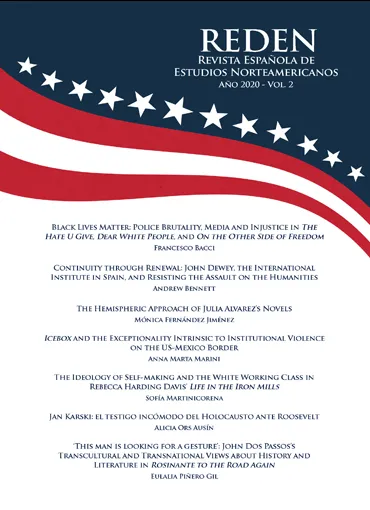
In The Modernist Papers (2007), Fredric Jameson refers to John Dos Passos’s modernist approach toward the fictional space as a “discontinuous literary cross-cutting” (167). The American cultural critic and theorist alludes to the author’s transversal and dialectical relationship between creativity and the totality of history. In fact, Dos Passos showed a utopian commitment with ideological radicalism in his literary aesthetics, and in his historical and political views of America and Europe. In this regard, Jun Lee draws attention to the fact that “as a modernist he tried to connect his aesthetic creativity to the totality of history in a dialectical way, since the perspective of totality is the core of his political radicalism as well as his art” (18).


